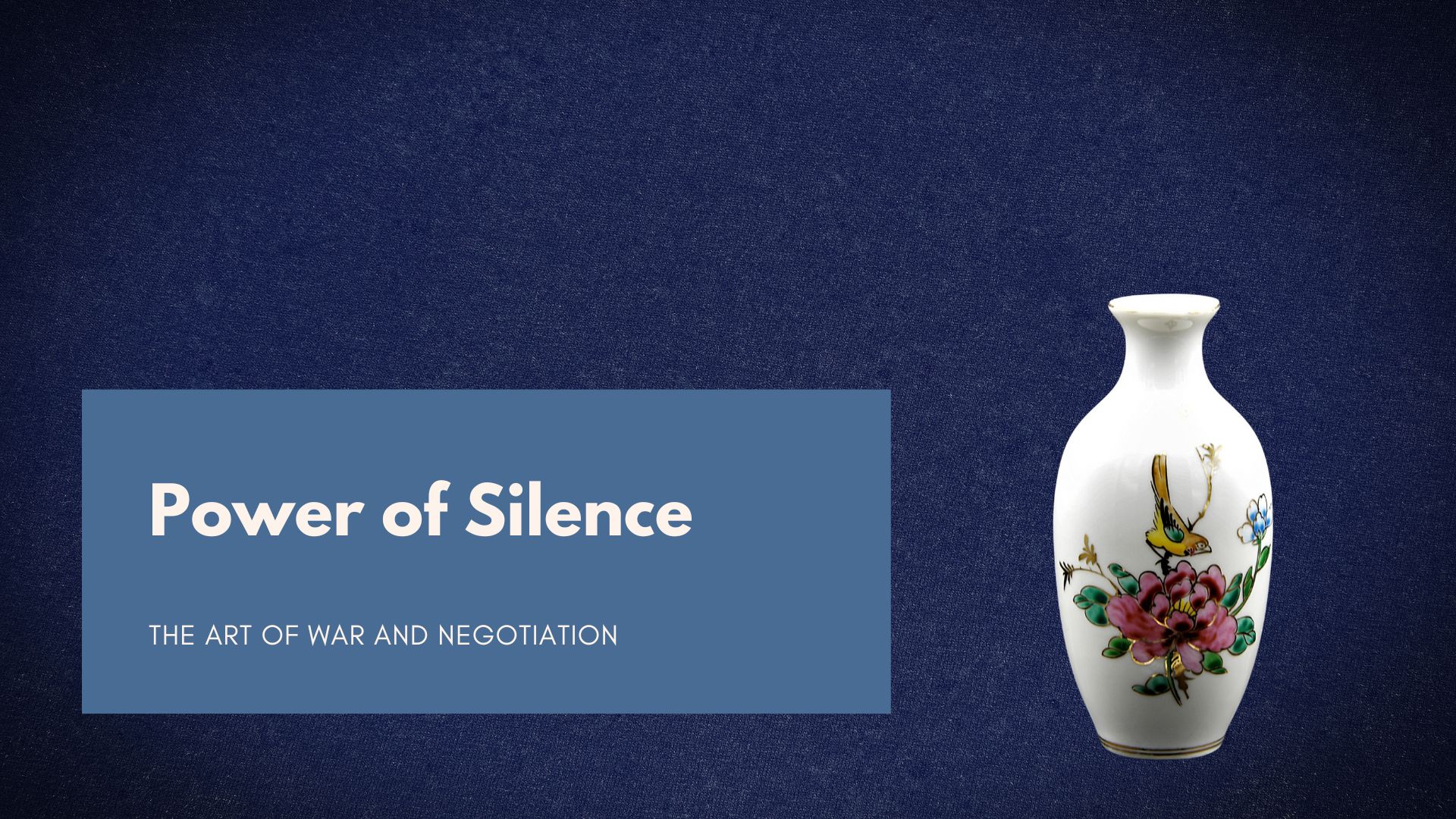Winning With Silence
The most powerful move in negotiation is often, believe it or not, saying nothing.
A few years ago, I walked into a fine china shop in Taiwan and found the perfect vase. It was exquisite, handcrafted, and priced at $500. I wanted it—but I didn’t have enough cash.
Instead of trying to bargain or plead, I simply remained silent. I examined the vase, placed it back gently, and let the weight of the moment settle in.
The salesperson, sensing my hesitation but unsure of my thoughts, grew visibly uneasy. After a few moments, he broke the silence:
“You know what? I can give you a special discount—how about $400?”
I hadn’t asked for a discount. I hadn’t said a word. But in that silence, the salesperson filled the void with a concession—cutting $100 from his own commission.
This moment perfectly illustrates one of the core principles of The Art of War: “When strong, appear weak. When weak, appear strong.”
In negotiation, silence is a form of strength. It creates discomfort, prompting the other party to reveal their position, make concessions, or second-guess themselves.
Why does silence work so well?
It shifts the pressure. Most people feel uneasy with silence and rush to fill it—often with unnecessary concessions.
It forces the other party to reveal their true position. The one who speaks first often loses leverage.
It projects confidence. Silence signals that you are in control, not desperate.
Sun Tzu teaches us that the best victories are won without a fight. In negotiations, the best deals are often sealed—not by the words we say, but by the words we don’t.
The next time you’re in a negotiation, try this: state your offer—then stop. Let the silence do the work. You might be surprised by what happens next.
Have you ever used silence to your advantage in a negotiation? What happened?”



